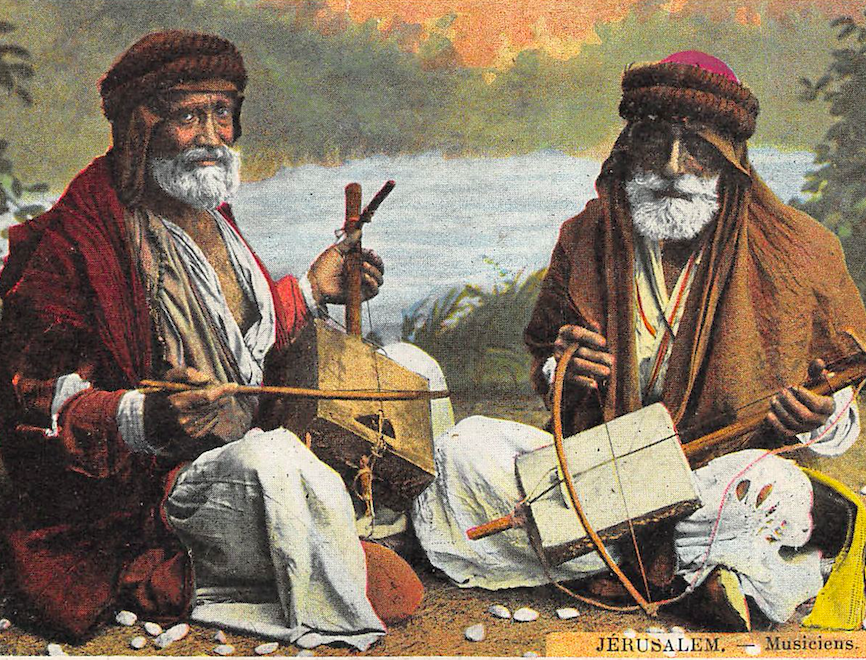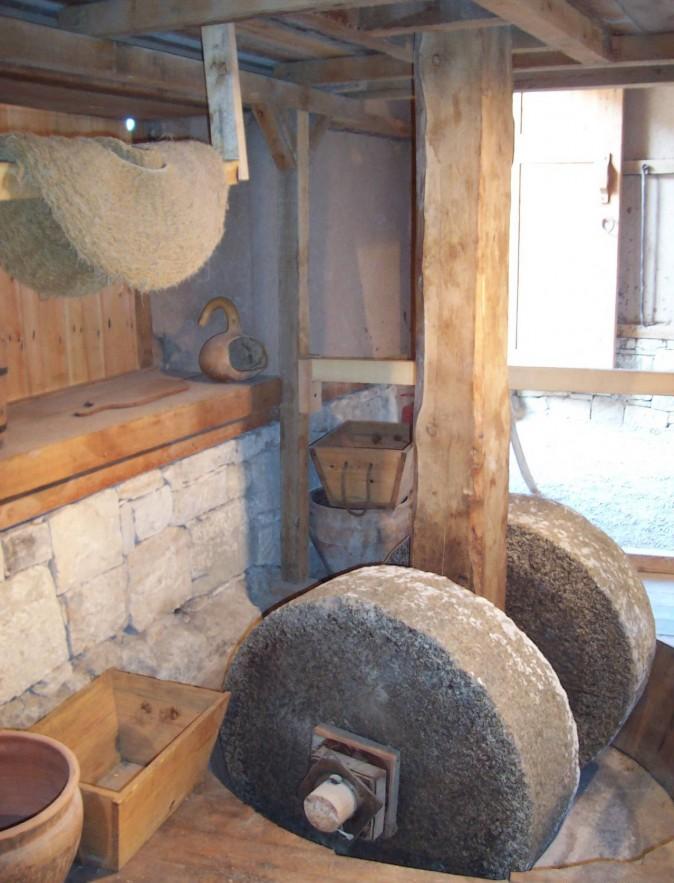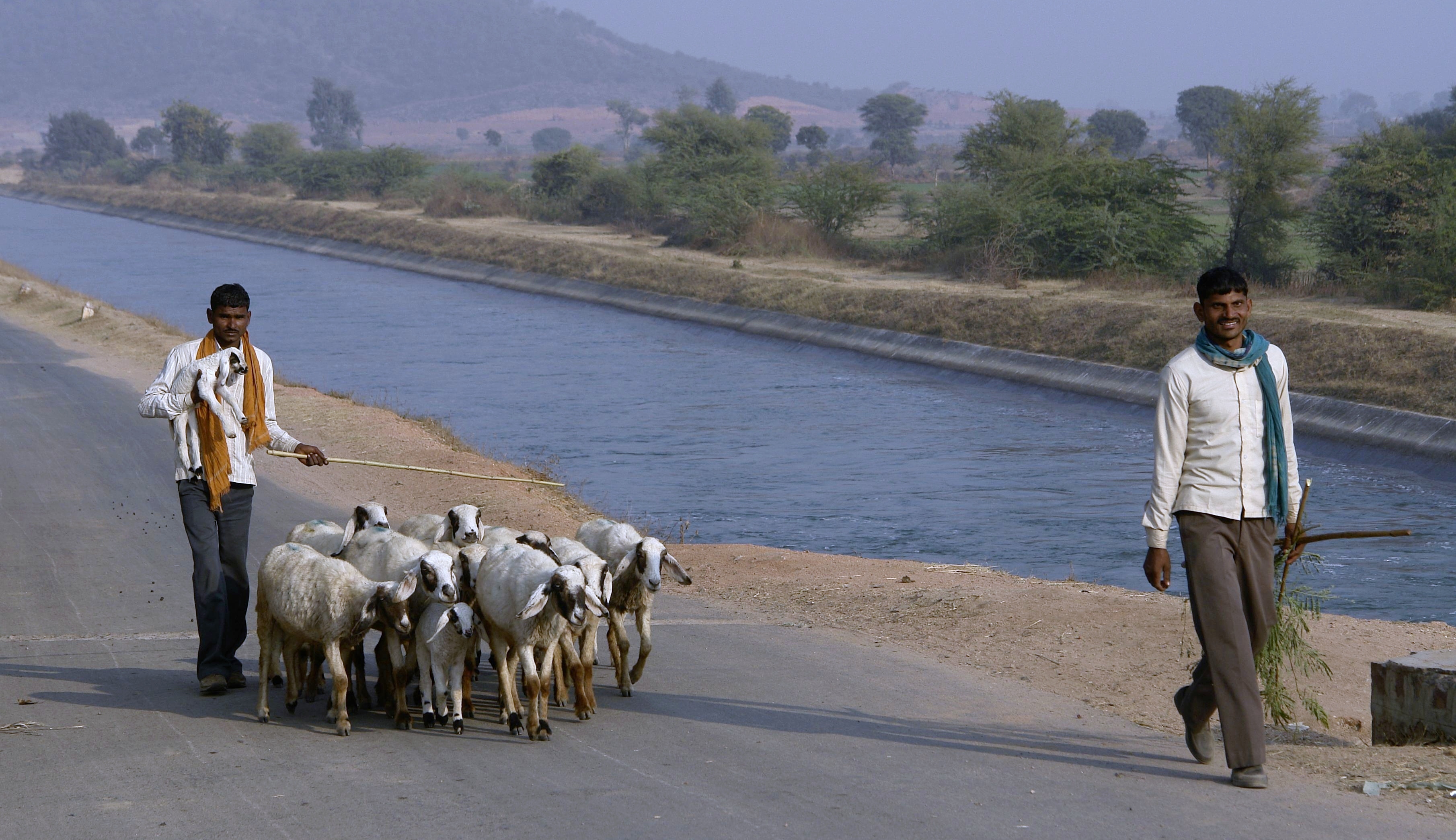|
Music Of Palestine
The music of Palestine ( ar, الموسيقى الفلسطينية) is one of many regional subgenres of Arabic music. While it shares much in common with Arabic music, both structurally and instrumentally, there are musical forms and subject matter that are distinctively Palestinian. Pre-1948 In the areas now controlled by both Israel and Palestine, multiple ethnic groups and religions have long held on to a diversity of cultures. The largest groups of people in territory that was formerly British Mandatory Palestine are (in order) Jews (including Sephardim, Mizrahim and Ashkenazim), Arabs (including urban and rural Muslim classes, Arab Christians, and Muslim Bedouin), Druze, Circassians, Samaritans, Armenians, Dom and others. Wasif Jawhariyyeh was one oud player, famous for his post-1904 diary. Folk music Early in the 20th century, Palestinian Arabs lived in cities and in rural areas, either as farmers or as nomads. The fellahin (farmers) sang a variety of work songs, used ... [...More Info...] [...Related Items...] OR: [Wikipedia] [Google] [Baidu] |
Arabic Music
Arabic music or Arab music ( ar, الموسيقى العربية, al-mūsīqā al-ʿArabīyyah) is the music of the Arab world with all its diverse music styles and genres. Arabic countries have many rich and varied styles of music and also many linguistic dialects, with each country and region having their own traditional music. Arabic music has a long history of interaction with many other regional musical styles and genres. It represents the music of all the peoples that make up the Arab world today, all the 22 states. History Pre-Islamic period (Arabian Peninsula) Pre-Islamic Arabia was the cradle of many intellectual achievements, including music, musical theory and the development of musical instruments. In Yemen, the main center of pre-Islamic Arab sciences, literature and arts, musicians benefited from the patronage of the Kings of Sabaʾ who encouraged the development of music. [...More Info...] [...Related Items...] OR: [Wikipedia] [Google] [Baidu] |
Samaritans
Samaritans (; ; he, שומרונים, translit=Šōmrōnīm, lit=; ar, السامريون, translit=as-Sāmiriyyūn) are an ethnoreligious group who originate from the ancient Israelites. They are native to the Levant and adhere to Samaritanism, an Abrahamic religions, Abrahamic and ethnic religion. Samaritan tradition claims the group descends from the northern Twelve Tribes of Israel, Israelite tribes who were not Assyrian captivity, deported by the Neo-Assyrian Empire after the destruction of the Kingdom of Israel (Samaria), Kingdom of Israel. They consider Samaritanism to be the true Yahwism, religion of the ancient Israelites and regard Judaism as a closely related but altered religion. Samaritans also regard Mount Gerizim (near both Nablus and biblical Shechem), and not the Temple Mount in Jerusalem, to be the holiest place on Earth. They attribute the schism between Samaritanism and Judaism to have been caused by Eli (biblical figure), Eli creating an alternate shrin ... [...More Info...] [...Related Items...] OR: [Wikipedia] [Google] [Baidu] |
Refugee Camp
A refugee camp is a temporary settlement built to receive refugees and people in refugee-like situations. Refugee camps usually accommodate displaced people who have fled their home country, but camps are also made for internally displaced people. Usually, refugees seek asylum after they have escaped war in their home countries, but some camps also house environmental and economic migrants. Camps with over a hundred thousand people are common, but as of 2012, the average-sized camp housed around 11,400. They are usually built and run by a government, the United Nations, international organizations (such as the International Committee of the Red Cross), or non-governmental organization. Unofficial refugee camps, such as Idomeni in Greece or the Calais jungle in France, are where refugees are largely left without support of governments or international organizations. Refugee camps generally develop in an impromptu fashion with the aim of meeting basic human needs for only a shor ... [...More Info...] [...Related Items...] OR: [Wikipedia] [Google] [Baidu] |
Dabke
''Dabke'' ( ar, دبكة also spelled ''dabka'', ''dubki'', ''dabkeh'', plural ''dabkaat'') is a Levantine Arab folk dance. Dabke combines circle dance and line dancing and is widely performed at weddings and other joyous occasions. The line forms from right to left and leader of the ''dabke'' heads the line, alternating between facing the audience and the other dancers. In English, it can be transcribed as ''dabka'', ''dabki'', ''dabkeh''. Etymology and history The etymology of 'dabke' is uncertain but is thought to be derived from the Levantine Arabic word ''dabaka'' ( ar, دبكة) meaning "stamping of the feet" or "to make a noise". The dabkeh jumps may have originated in ancient Canaanite fertility rituals related to agriculture, chasing off evil spirits and protecting young plants. According to Lebanese historian Youssef Ibrahim Yazbec, the dabke descends from Phoenician dances thousands of years old. Another theory is that stomping part of dabke started out as a way o ... [...More Info...] [...Related Items...] OR: [Wikipedia] [Google] [Baidu] |
Wedding
A wedding is a ceremony where two people are united in marriage. Wedding traditions and customs vary greatly between cultures, ethnic groups, religions, countries, and social classes. Most wedding ceremonies involve an exchange of marriage vows by a couple, presentation of a gift (offering, rings, symbolic item, flowers, money, dress), and a public proclamation of marriage by an authority figure or Celebrant (Australia), celebrant. Special wedding garments are often worn, and the ceremony is sometimes followed by a wedding reception. Music, poetry, prayers, or readings from religious texts or literature are also commonly incorporated into the ceremony, as well as Wedding superstitions, superstitious customs. Common elements across cultures Some cultures have adopted the traditional Western custom of the white wedding, in which a bride wears a white wedding dress and veil. This tradition was popularized through the marriage of Queen Victoria. Some say Victoria's choice of ... [...More Info...] [...Related Items...] OR: [Wikipedia] [Google] [Baidu] |
Olive Oil
Olive oil is a liquid fat obtained from olives (the fruit of ''Olea europaea''; family Oleaceae), a traditional tree crop of the Mediterranean Basin, produced by pressing whole olives and extracting the oil. It is commonly used in cooking: for frying foods or as a salad dressing. It can be found in some cosmetics, pharmaceuticals, soaps, and fuels for traditional oil lamps. It also has additional uses in some religions. The olive is one of three core food plants in Mediterranean cuisine; the other two are wheat and grapes. Olive trees have been grown around the Mediterranean since the 8th millennium BC. In 2019–2020, world production of olive oil was . Spain was the largest producer followed by Italy, Tunisia, Greece, Turkey and Morocco. San Marino has by far the largest per capita consumption of olive oil worldwide. The composition of olive oil varies with the cultivar, altitude, time of harvest, and extraction process. It consists mainly of oleic acid (up to 83%), with ... [...More Info...] [...Related Items...] OR: [Wikipedia] [Google] [Baidu] |
Harvest
Harvesting is the process of gathering a ripe crop from the fields. Reaping is the cutting of grain or pulse for harvest, typically using a scythe, sickle, or reaper. On smaller farms with minimal mechanization, harvesting is the most labor-intensive activity of the growing season. On large mechanized farms, harvesting uses the most expensive and sophisticated farm machinery, such as the combine harvester. Process automation has increased the efficiency of both the seeding and harvesting processes. Specialized harvesting equipment utilizing conveyor belts to mimic gentle gripping and mass-transport replaces the manual task of removing each seedling by hand. The term "harvesting" in general usage may include immediate postharvest handling, including cleaning, sorting, packing, and cooling. The completion of harvesting marks the end of the growing season, or the growing cycle for a particular crop, and the social importance of this event makes it the focus of seasonal celebrati ... [...More Info...] [...Related Items...] OR: [Wikipedia] [Google] [Baidu] |
Shepherd
A shepherd or sheepherder is a person who tends, herds, feeds, or guards flocks of sheep. ''Shepherd'' derives from Old English ''sceaphierde (''sceap'' 'sheep' + ''hierde'' 'herder'). ''Shepherding is one of the world's oldest occupations, it exists in all parts of the globe, and it is an important part of Pastoralism, pastoralist animal husbandry. Because of the ubiquity of the profession, many religions and cultures have symbolic or metaphorical references to the shepherd profession. For example, Jesus called himself the Good Shepherd, and ancient Greek mythologies highlighted shepherds such as Endymion (mythology), Endymion and Daphnis. This symbolism and shepherds as characters are at the center of pastoral literature and art. Origins Shepherding is among the oldest occupations, beginning some 5,000 years ago in Asia Minor. Sheep were kept for their milk, sheep meat, meat and especially their wool. Over the next thousand years, sheep and shepherding spread throughout ... [...More Info...] [...Related Items...] OR: [Wikipedia] [Google] [Baidu] |
Fishing
Fishing is the activity of trying to catch fish. Fish are often caught as wildlife from the natural environment, but may also be caught from stocked bodies of water such as ponds, canals, park wetlands and reservoirs. Fishing techniques include hand-gathering, spearing, netting, angling, shooting and trapping, as well as more destructive and often illegal techniques such as electrocution, blasting and poisoning. The term fishing broadly includes catching aquatic animals other than fish, such as crustaceans ( shrimp/ lobsters/crabs), shellfish, cephalopods (octopus/squid) and echinoderms ( starfish/ sea urchins). The term is not normally applied to harvesting fish raised in controlled cultivations ( fish farming). Nor is it normally applied to hunting aquatic mammals, where terms like whaling and sealing are used instead. Fishing has been an important part of human culture since hunter-gatherer times, and is one of the few food production activities that have persisted ... [...More Info...] [...Related Items...] OR: [Wikipedia] [Google] [Baidu] |
Work Song
A work song is a piece of music closely connected to a form of work, either sung while conducting a task (usually to coordinate timing) or a song linked to a task which might be a connected narrative, description, or protest song. Definitions and categories Records of work songs are as old as historical records, and anthropological evidence suggests that most agrarian societies tend to have them. Most modern commentators on work songs have included both songs sung while working as well as songs about work since the two categories are seen as interconnected. Norm Cohen divided collected work songs into domestic, agricultural or pastoral, sea shanties, African-American work songs, songs and chants of direction, and street cries. Ted Gioia further divided agricultural and pastoral songs into hunting, cultivation and herding songs, and highlighted the industrial or proto-industrial songs of cloth workers (see Waulking song), factory workers, seamen, lumberjacks, cowboys and miner ... [...More Info...] [...Related Items...] OR: [Wikipedia] [Google] [Baidu] |
Fellah
A fellah ( ar, فَلَّاح ; feminine ; plural ''fellaheen'' or ''fellahin'', , ) is a peasant, usually a farmer or agricultural laborer in the Middle East and North Africa. The word derives from the Arabic word for "ploughman" or "tiller". Due to a continuity in beliefs and lifestyle with that of the Ancient Egyptians, the fellahin of Egypt have been described as the "true Egyptians". A fellah could be seen wearing a simple Egyptian cotton robe called ''galabieh'' (''jellabiya''). The word ''galabieh'' originated around 1715–25 and derived from the Egyptian slang word ''gallabīyah''. Origins and usage "Fellahin," throughout the Middle East in the Islamic periods referred to native villagers and farmers. It is translated as "peasants" or " farmers". Fellahin were distinguished from the ''effendi'' (land-owning class), although the fellahin in this region might be tenant farmers, smallholders, or live in a village that owned the land communally. Others applied the ... [...More Info...] [...Related Items...] OR: [Wikipedia] [Google] [Baidu] |









